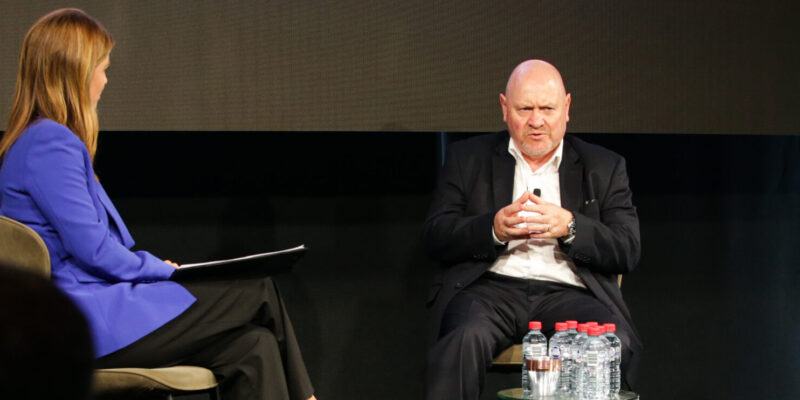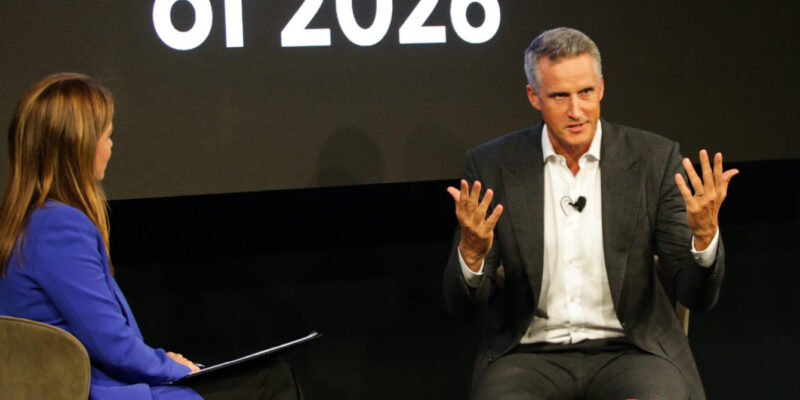‘Why are you blocking others out?’ PEXA grilled by NSW Inquiry
An NSW parliamentary inquiry into interoperability reform has taken aim at PEXA’s market monopoly and move to hold others out. Its CEO says the reform model is fundamentally flawed.

PEXA, the company holding a monopoly on e-Conveyancing in Australia, has been grilled in the NSW parliament about why it is blocking new entrants to the $300 million market.
PEXA representatives appeared before a government inquiry on Wednesday (November 5), arguing it had initially cooperated with efforts to introduce interoperability reform in NSW by December 2025, but “the scope has creeped”.
“Our concern is not with facing competition, but with the current expectation that PEXA should shoulder the responsibility of engineering a viable business model for potential competitors,” PEXA CEO Russell Cohen told the hearing.
PEXA became wholly privately owned in 2019 when states sold off their interests in the company. The Commonwealth Bank-backed firm today has a near monopoly over Australia’s e-Conveyancing market. Rival company Sympli says it cannot operate seamlessly within the existing network platform.
Mr Cohen claimed competitors were proposing models that “piggyback on PEXA’s innovations at a discounted price”.
However, inquiry member, Greens MP Abigail Boyd, argued PEXA’s innovation success was largely a result of being “gifted a monopoly position” by the parliament.
“Why is PEXA now standing in the way of this parliament’s intention for there to be competition?” Ms Boyd asked.
“Why is PEXA issuing threatening letters to others involved in the interoperability process, which has had a chilling effect on the reforms?”
Mr Russell denied PEXA had sent “threatening” letters, but said different parties involved in the interoperability reforms needed reminding that PEXA owned the intellectual property (IP) of its platform and technology.
The company argued the innovations had been built over years, making the system more sophisticated and efficient, and now all four major banks were demanding that all competitors provide the same functions and features.
“It is our responsibility to protect that IP, to protect that IP for our shareholders,” PEXA’s chief regulatory and corporate affairs officer Clare Gill added.
However, Nationals MLC Wes Fang suggested PEXA had made interoperability much harder by enhancing the sophistication of its own system.
“In reality that’s your fault because you’ve effectively made a system so complex and integrated with the banking system that you’ve locked out other players,” he said.
“Why shouldn’t we just force you to open your systems now, given you’ve elected to make the behemoth you’ve got … and allow the competition we flagged would be required prior to privatisation?”
“We don’t see it like that,” Mr Russell replied, pointing to hundreds of millions PEXA has invested serving the Australian market with its significant national asset.
“For us, we think it’s something that makes Australia unique in the world of property settlements. We think it’s a national asset that we’re very proud to export.”
Mr Russell denied it was using its market power to stop other entrants, saying it had participated “fully” in the interoperability program over many years. Today the e-Conveyancing system was safe, reliable and low cost and any changes should strengthen, not weaken its integrity, he added.
“Interoperability as it was scoped by ARNECC, we think is a failed reform. There is a model for interoperability which we could welcome, which is two fully functioning networks of similar technical features and similar geographic coverage, agreeing on what information to exchange. Until we have that, any other reform we think is fundamentally flawed.”
Sympli CEO Philip Joyce told the inquiry there was a risk in having a monopoly player.
“If there was a multi-day outage impacting PEXA monopoly today, every single property settlement in NSW and Australia would stop, causing financial and emotional cost to everyday Australians,” he said.
“We’re a fully functional comparable network in NSW. Once interoperability is live, if PEXA were to go down, Sympli could step in and vice versa.”
As well as reliability, a two-network system would make the trillion-dollar property market less vulnerable to cyber-fraud and would lead to lower prices and better service for customers.
“This reform is long overdue because the incumbent monopoly has every incentive to delay. It is worth over $1 million a day to PEXA in uncontested revenue,” Mr Joyce said.
“Unless NSW uses its extensive powers to better manage the monopoly, these tactics will continue.”
Further, Mr Joyce was confident interoperability could be delivered without the sharing of “any perceived IP” as claimed by PEXA and that an equivalent service to the banks could be delivered.
He said the NSW government had the necessary powers to implement interoperability, with clear binding directions to all parties.
“The features that PEXA outline in their submission are not unique – we have built them on the Sympli platform. Why are we here? Because this reform is blocked by the incumbent, who has no incentive to voluntarily deliver this reform.
“Ten days of delay already outweighs the largest fine that could occur.”
John Ahern, CEO of InfoTrack, an entity related to Sympli, added that after so many delays, it was becoming harder to argue with its shareholders that there was a path forward.
“We know from speaking to ex-employees from PEXA and people in the industry that it’s been a long-term strategy to bleed us dry,” he said.
Australian Institute of Conveyancers NSW president Jennie Tonner supported competition, if the technology was simple to use, secure and protected the industry and its clients from risk.
“I don’t want to hear ‘it’s too hard’ by a bank. It was much harder for us to learn and to be on e-Conveyancing,” she said.
Ms Tonner said most conveyancers were satisfied with the present single operator system and were fearful the addition of more operators would increase cyber security risks.
Industry regulator ARNECC, which includes registrars from all states and territories, had been leading the reform to deliver full competition in digital settlements. But mid last year it paused the program, saying issues raised by the banks were “beyond the remit of state and territories to resolve”.
Jared Zak, principal solicitor and founder of Dott & Crossitt in NSW, was concerned a monopoly situation would cause havoc in the event of an outage.
“Last year in August we had a big outage in Queensland. I had literally people stranded in the driveway and had to stay in accommodation. We wrote to PEXA, and they compensated my client. That to me was a really big red flag.
“If there’s a nationwide event of this nature – there’s nothing to suggest that can’t happen – we’re in a lot of trouble.”
The NSW inquiry is investigating the impacts of recent outages on property settlements, as well as current pricing and opportunities to drive competition.





